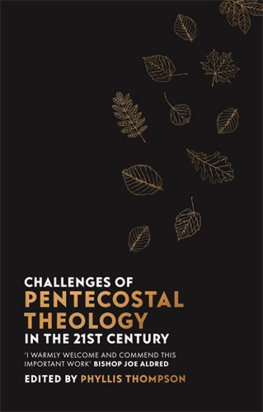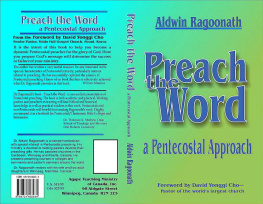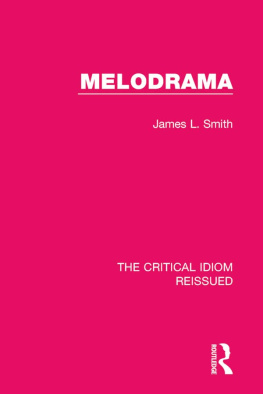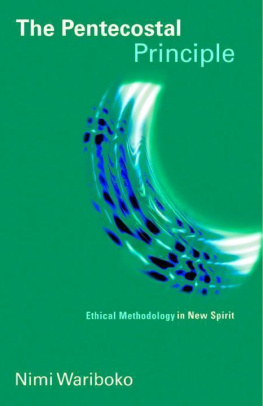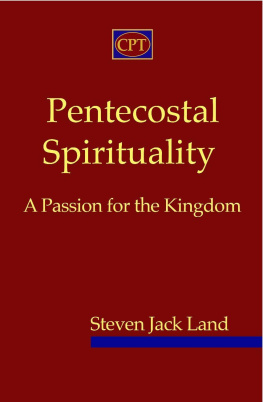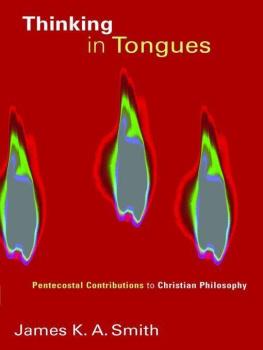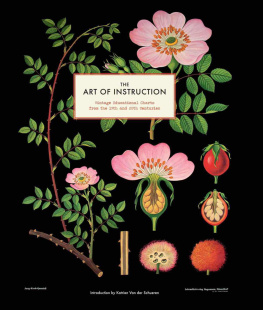THE MAKING OF THE PENTECOSTAL MELODRAMA
Anthropology of the Media
Series Editors: John Postill and Mark Peterson
The ubiquity of media across the globe has led to an explosion of interest in the ways people around the world use media as part of their everyday lives. This series addresses the need for works that describe and theorize multiple, emerging, and sometimes interconnected media practices in the contemporary world. Interdisciplinary and inclusive, this series offers a forum for ethnographic methodologies, descriptions of non-Western media practices, explorations of transnational connectivity, and studies that link culture and practices across fields of media production and consumption.
Volume 1
Alarming Reports: Communicating Conflict in the Daily News
Andrew Arno
Volume 2
The New Media Nation: Indigenous Peoples and Global Communication
Valerie Alia
Volume 3
News as Culture: Journalistic Practices and the Remaking of Indian Leadership Traditions
Ursula Rao
Volume 4
Theorising Media and Practice
Edited by Birgit Bruchler and John Postill
Volume 5
Localizing the Internet: An Anthropological Account
John Postill
Volume 6
The Making of the Pentecostal Melodrama: Religion, Media, and Gender in Kinshasa
Katrien Pype
The Making of
the Pentecostal Melodrama
Religion, Media, and Gender in Kinshasa
Katrien Pype
First published in 2012 by
Berghahn Books
www.berghahnbooks.com
2012, 2015 Katrien Pype
First paperback edition published in 2015
All rights reserved. Except for the quotation of short passages for the purposes of criticism and review, no part of this book may be reproduced in any form or by any means, electronic or mechanical, including photocopying, recording, or any information storage and retrieval system now known or to be invented, without written permission of the publisher.
Library of Congress Cataloging-in-Publication Data
Pype, Katrien.
The making of the Pentecostal melodrama : religion, media, and gender in Kinshasa / Katrien Pype.
p. cm. (Anthropology of the media ; v.6)
ISBN 978-0-85745-494-2 (hardback : alk. paper) ISBN 978-1-78238-681-0 (paperback : alk. paper) ISBN 978-0-85745-495-9 (ebook)
1. Motion pictures in ethnologyCongo (Democratic Republic)Kinshasa. 2. Video recording in ethnologyCongo (Democratic Republic)Kinshasa. 3. Anthropology of religionCongo (Democratic Republic)Kinshasa. 4. Pentecostal churchesCongo (Democratic Republic)Kinshasa. 5. Television in religionCongo (Democratic Republic)Kinshasa. 6. Kinshasa (Congo)Religious life and customs. 7. Kinshasa (CongoSocial condtions. 8. Kinshasa (Congo)Politics and government. I. Title.
GN654.P97 2012
791.4509675112dc23
2011052126
British Library Cataloguing in Publication Data
A catalogue record for this book is available from the British Library
Printed on acid-free paper.
ISBN: 978-0-85745-494-2 hardback
ISBN: 978-1-78238-681-0 paperback
ISBN: 978-0-85745-495-9 ebook
The use of a study of melodrama must at the last repose
on a conviction that the study of aesthetic form
modes of expression and representation
can be useful in situating ourselves.
Aesthetic forms are means for interpreting and making sense of experience.
Any partial rewriting of cultural history must be
a rethinking of how we make sense of our lives,
of the successive episodes in the enterprise of homo significans,
of man as the creator of sense-making sign-systems.
Peter Brooks, The Melodramatic Imagination
Contents
Illustrations
Figures
Moving Images
1. Kalaonga seduces Caleb (Kalaonga)
2. Maman Deborahs confession in Heritage of Death
3. The young girl is a Mami Wata (Kalaonga)
4. Maman Jeanne visits a diviner (Kalaonga)
Acknowledgments
Rather early during my fieldwork, Bienvenu and Raph, two leading men of the Cinarc troupe, compared their acting work with a palm tree. They used the Lingala proverb Nzete ya mbila bakokata ekokola bakokata ekokola, translated as follows: You can cut a palm tree, it will grow again, and if you cut again, it will grow again. Bienvenu and Raph explained the proverb thusly:
A palm tree continuously offers fruit, which makes it a very prosperous and wealthy tree. It is used to make food, and drink, like palm wine, but also material utensils like brooms, and the soap that can be made of it helps to care for the body. The palm tree thus offers many products, and no one can really explain why this tree is so rich.
The actors were referring to the economic, social, and symbolic capital that working as Christian TV celebrities offered them. Throughout this volume, I will deal with the richness that making teleserials offers to the artists. But its fruits are not reserved only for them. For me as a researcher, my work with them could be compared with a fruitful palm tree. One of the fruits, this book, is now in your hands.
I could not shake that palm tree on my own, nor can I claim to have plucked the fruits by myself. Before, during, and since the fieldwork, I have enjoyed the assistance of so many people that I can honestly say that this book is the outcome of a collective endeavor. Therefore, I would like to acknowledge the assistance of the following people and organizations that have contributed to the completion of this project.
Firstly, I am grateful to the Katholieke Universiteit Leuven, and in particular the Faculties of Psychology and Pedagogy and of Social Sciences, which provided me with the position of a research and teaching assistant and the financial means to pursue the research. Filip De Boeck was the promoter of the dissertation that inspired this book. I am thankful to him for having offered me the chance to start my doctoral research. He invited me to go to Kinshasa, helped me single out a research topic, and did not object when I changed the subject matter. He accompanied me on my first trip to Kinshasa, and our tours around the city and visits to his acquaintances immediately immersed me in the citys ambiance. He furthermore introduced me to local artists, cultural centers, and university institutions. During these initial weeks, he also taught me how to move around the city, advised me on how to approach people, and brought me to the Nlanza family, with whom I lived during a major part of the fieldwork. I greatly value Filips aid in Kinshasa and in Leuven. His knowledge about Kinshasa and its cultural world is impressive, and his infinite willingness to read drafts and revised versions of chapters and to comment on both content and style has greatly improved the quality of my writing.
In Kinshasa, I enjoyed living with two host families. The first, headed by Mme Hermelinde Nlanza, oriented me in all aspects of Kinshasas social and cultural worlds. During the final part of fieldwork, I sojourned in the compound of Mme Antoinette Kongo (Lemba). Her house really became like a home, and I cherish the hospitality of Maman Anto, her children Kethi and Benz, and the other compound dwellers.



